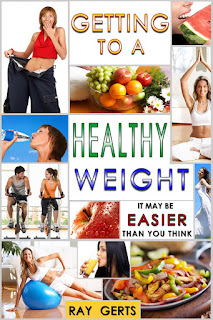A nutrient in meat and eggs may conspire with gut bacteria to make the blood more prone to clotting, a small study suggests.
The nutrient is called choline. Researchers found that when they gave 18 healthy volunteers choline supplements, it boosted their production of a chemical called TMAO.
That, in turn, increased their blood cells' tendency to clot. But the researchers also found that aspirin might reduce that risk.
TMAO is short for trimethylamine N-oxide. It's produced when gut bacteria digest choline and certain other substances.
Past studies have linked higher TMAO levels in the blood to heightened risks of blood clots, heart attack, and stroke, said Dr. Stanley Hazen, the senior researcher on the new study.
These findings, he said, give the first direct evidence that choline revs up TMAO production in the human gut, which then makes platelets (a type of blood cell) more prone to sticking together.
Choline is found in a range of foods, but it's most concentrated in animal products such as egg yolks, beef, and chicken.
Hazen said he and his colleagues at the Cleveland Clinic wanted to isolate the effects of choline on people's levels of TMAO and their platelet function. So they studied supplements.
The researchers had 18 healthy adults --10 meat-eaters and eight vegetarians/vegans -- take choline supplements for two months.
The supplements provided around 450 milligrams of choline daily -- roughly the amount in two or three eggs, Hazen said.
One month in, the study found, the supplements had raised participants' TMAO levels 10-fold, on average. And tests of their blood samples showed that their platelets had become more prone to clotting.
For the healthy people in this study, the TMAO rise from choline might not be worrisome. But, it might be a concern for people at increased risk of heart disease or stroke.
"You don't have to become a vegetarian," he said. "But you could try eating more plant-based foods, and more vegetarian meals."
He also pointed to the Mediterranean diet -- rich in olive oil, vegetables, and fish. In an earlier study, Hazen said, his team found that a compound in olive oil seems to inhibit TMAO formation.
If you read the above post from the WebMD site, it seems that the problems with blood clotting are caused by animal fat. This post sites egg yolks, the meat of all kinds including poultry will contain Choline, which causes blood clotting.
Just like the article, I'm not suggesting you become a vegetarian but people, in general, consume too many animal products. To stay healthy you need to limit any animal products and that includes dairy. Most middle-aged adults have to take "statins" for high cholesterol and why? Because of the quantity of animal-based products we consume. Whether it's egg yolks or beef you can't trim off the fat. We need to be eating more seafood and green vegetables, beans, and fruits.
High cholesterol is another sign that we have to change our diet. If your want to live a long, healthy life you have to listen to your body. Your doctor can't fix your health problems, all they can do is control them. You have to be the adult in the room and take care of your body.
Look for my podcast by searching “How Bad Do You Want To Lose Weight” on the podcast app that you use. You’ll see a piece of my book cover.
If you really want to lose your body fat look for my e-books at the websites listed below. You'll get information on Healthy eating, exercise, and diet. Instead of spending hours on the internet reading dozens of posts, you can save time by picking up one of my e-books.
There are two e-books. “How Bad Do You Want To Lose Weight?” is available at all the online bookstores selling for $3.99. Go to any of the websites below and search the title to find my e-book. This book gives you all you need to lose weight without spending money on gym memberships, diet plans, or meal plans. Look for my book. at Amazon.com, bn.com, iBooks, Kobo.com, Scribd.com, or Gardner Books in the U.K.
My new e-book is available on Smashwords.com and other online bookstores. Just type “getting to a Healthy Weight” in the search box at the top of the home page.



Comments